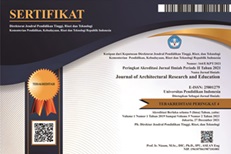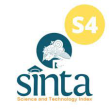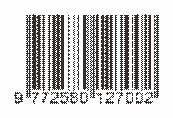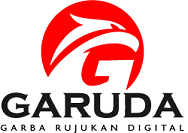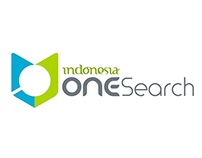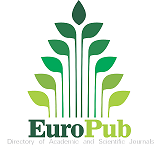Understanding Level of Technology Pedagogy and Content Knowledge (TPACK) Students of Architectural Engineering Education Study Program
Abstract
The Law of the Republic of Indonesia Number 14 of 2005 concerning Teachers and Lecturers states that a teacher must have four competencies, namely pedagogical competence, personality, social and professional competences. A teacher is expected to pay attention to the material, strategy, technology or surrounding culture in helping to realize active, creative, fun and meaningful learning. One of the uses of ICT in education is needed as an effort to improve the efficiency and effectiveness of the learning process. However, there are many obstacles faced in its application, including a lack of teacher understanding of technology. Technological Pedagogical And Content Knowledge (TPACK) is a framework that describes the knowledge needed by teachers to integrate technology in designing, implementing and evaluating learning. This study aims to determine the level of understanding of the Technological Pedagogical and Content Knowledge of students of the Architectural Engineering Education Study Program who are also prospective teachers. The research method used is descriptive evaluative with a quantitative approach. Retrieval of data using a survey method of 35 respondents from students of the Architectural Engineering Education Study Program who have been and are currently participating in the Field Experience Program at Vocational High Schools in various regions in West Java. The instrument used was a closed questionnaire where each statement was based on each TPACK component. The results showed that the average level of understanding of Architectural Engineering students towards TPACK was in the good category. The highest value is in the aspect of Technology Knowledge (TK), which is knowledge about technology with a very high category.
Full Text:
PDFReferences
Anonim. (2012). TPACK. www.tpack.org [diakses, 27 Juli 2012].
Chai C.S, Koh, Tsai, & Tan (2011). Modeling primary school pre-service teachers’Technological Pedagogical Content Knowledge (TPACK). Computers & Education, 57(2011), 1184-1193.
Chai, C.S., Koh, J. H.L., & Tsai, C.C. (2013). A Review of Technological Pedagogical Content Knowledge. Educational Technology & Society, 16 (2), 31–51.
Chai, C. S., Koh, J. H. L., & Tsai, C.-C. (2016). 6A Review of the quantitative measures of Technological Pedagogical Content Knowledge (TPACK). In Handbook of technological pedagogical content knowledge (TPACK) for educators (hal. 97–116). Routledge.
Depdiknas .2006. Permendiknas No 22 Tahun 2006 Tentang Standar Isi. Jakarta : Depdiknas.
Hinduan, Z.r.,M.I. Agia, dan S. Kholiq.2017. Generation Z in Indonesia : Psychological Capital, Work Value, and Learning Style. Universitas Padjadjaran.
Kocoglu, Z. (2009). Exploring The Technological Pedagogical Content Knowledge of Pre-service Teachers in Language Education. Dalam Procedia Social and Science [Online], Vol. 1 (2734-2737). DOI: 10.1016/j.sbspro.2009.01.485
Marzano & Heflebower (2012). Teaching & Assessing 21st Century Skills. Marzano Research Laboratory; 1 edition (August 8, 2011)
Mishra dan Kohler, M (2006), Technological Pedagogical Content Knowledge: A Framework for Teacher Knowledge. Teachers College Record Volume 108, Number 6, June 2006, pp. 1017–1054
Mishra dan Kohler, M (2008), Handbook of Technological Pedagogical Content Knowledge (TPACK) for Educators. New York: Routledge for the American Association of Colleges for Teacher Education.
Mishra, et. al. (2009). Technological Pedagogical Content Knowledge (TPACK): The Development and Validation of an Assessment Instrument for Preservice Teachers..Journal of Research on Technology in Education 42(2), 123–149
Munir, (2008), Kurikulum Berbasis Teknologi Informasi dan Komunikasi. Bandung: Alfabeta.
Parkay, F. W., & Stanford, B. H. (2009). Becoming a teacher (8th ed.). Boston, MA: Allyn and Bacon.
Rusman, (2012), Belajar dan Pembelajaran Berbasis Komputer: Mengembangkan Profesionalisme Guru Abad 21. Bandung: Alfabeta.
Shavelson, R., Ruiz-Primo, A., Li, M., & Ayala,C. (2003, August). Evaluating new approaches to assessing learning (CSE Report 604). Los Angeles, CA: University of California, National Center for Research on Evaluation.
Sagala, S. (2009). Kemampuan Profesional Guru dan Tenaga Kependidikan. Bandung: Alfabeta
Schmidt, D. A., Thompson, A. D., Koehler, M. J., & Shin, T. S. (2009). Technological Pedagogical Content Knowledge (TPACK): the development and validation of an assessment instrument for preservice teachers. Journal of Research on Technology in Education, 42(2), 123–149.
Suryawati, E., Hernandez, Y. Firdaus L.N. (2014). Analisis Keterampilan Technological Pedagogical Content Knowledge (TPCK) Guru Biologi SMA Negeri Kota Pekanbaru. Jurnal Biogenesis. 11 (1), 67-72.
Sutrisno, (2012), Kreatif Mengembangkan Aktivitas Pembelajaran Berbasis TIK. Jakarta: Referensi.
Tsai, H.C. (2015). A senior teacher’s implementation of technology integration. International Education Studies, 8(6): 151-161.
Undang-Undang Republik Indonesia Nomor 14 Tahun 2005 tentang Guru dan Dosen.
DOI: https://doi.org/10.17509/jare.v3i1.30656
Refbacks
- There are currently no refbacks.
Copyright (c) 2021 Riskha Mardiana

This work is licensed under a Creative Commons Attribution-NonCommercial-ShareAlike 4.0 International License.

This work is licensed under a Creative Commons Attribution-ShareAlike 4.0 International License.


